Are dahlias poisonous to dogs? Dahlias are labeled poisonous plants to dogs, but the main compound responsible for their toxicity remains unknown. Let us find out why these species of plants are a threat to your canine friend’s health.
Why Are Dahlias Poisonous to Dogs?
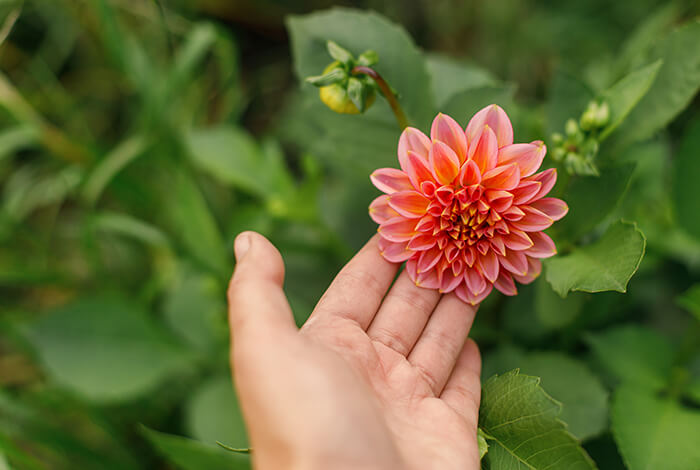
Experts have no definitive answer as to what chemical causes dahlias to be poisonous. However, some claim that this plant produces phototoxic polyacetylene substances that are responsible for health problems in dogs.
If your canine companion ingests a dahlia plant, he might end up experiencing stomach upset. Skin irritation may also occur since its toxic substances trigger photosensitivity.
Which Parts of Dahlias Are Poisonous to Dogs?
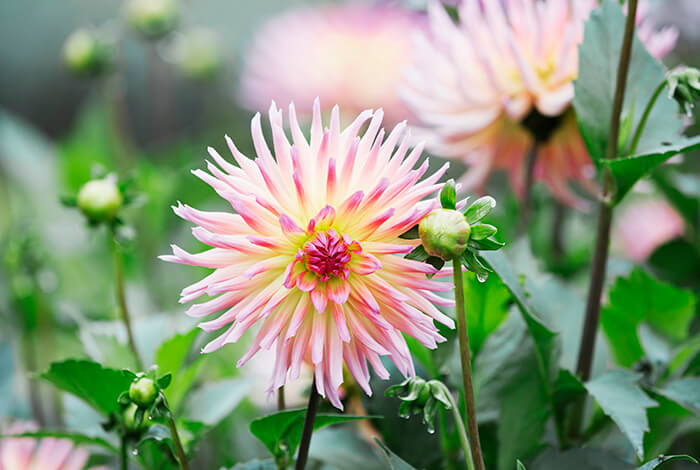
Phototoxic polyacetylene substances are found in all parts of the dahlia, including its:
- Flowers
- Leaves
- Roots
- Stems
- Tubers
Despite the dahlia’s mild toxicity to dogs, the presence of harmful chemicals in every part of its body makes the onset of poisoning easier if dogs ingest the plant.
How Poisonous Are Dahlias to Dogs?
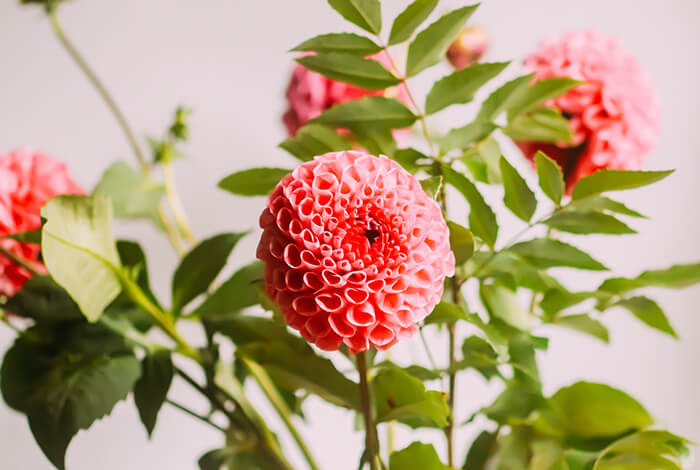
The dangers dahlias possess are often overlooked because they do not induce severe adverse reactions in humans and pets. Some sources even classify the plant as safe due to its low-risk toxicity.
However, we advise you to stay vigilant and avoid ignoring the troubling ailments these plants may inflict on your furry friend. Although these illnesses are often fleeting and resolve within a few days, it is not worth putting him through such a distressing predicament.
Thus, keep safety measures in place to prevent your pet from accidentally ingesting dahlias. It involves excluding these plants as decors in your home and garden.
If this is not feasible, ensure that they are placed somewhere inaccessible to your pooch, such as areas in the house where he rarely visits. Setting dahlias atop a high cabinet, locked shelf, or hanging pots is also a good idea.
When taking your pet outdoors, use a short leash to prevent him from straying far away from you. It helps you keep a better eye on any curiosities he investigates along the way. We recommend choosing routes with no dahlias for more safety.
What Are Symptoms of Dahlia Poisoning in Dogs?
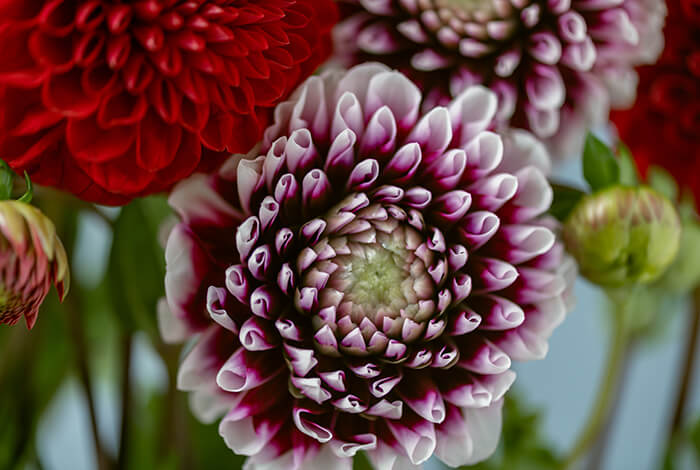
As we have mentioned earlier, gastrointestinal distress may arise if canines ingest dahlia. Typical clinical signs to keep an eye out for are stomach pain, vomiting, and diarrhea.
Ingestion of the plant’s phototoxic polyacetylene substances also sets off mild dermatitis. Some symptoms that may occur, include:
- Inflamed, itchy skin
- Blisters/sores
- Red rashes
If your dog consumes the dahlia plant in large amounts, severe adverse reactions may take place, such as fast heart rate, incoordination, and seizures.
The development of these clinical signs calls for immediate medical intervention to prevent fatality.
What Should You Do If Your Dog Ingests a Dahlia Plant?
You would want to separate your dog from the dahlia in case he attempts to get a taste of it again. Then move on to piecing information about what occurred. Take note of these crucial details:
- Estimated time of the incident
- Parts of the dahlia your dog has ingested
- Amount of plant matter eaten by him
- Any clinical symptoms that have manifested
Disclose this set of information to the vet or a pet poison helpline to know the appropriate steps to take. If your dog’s condition is not alarming, you will be tasked to monitor him at home.
On the other hand, you will need to take him to a pet clinic if the veterinarian deems the situation an emergency. Before driving there, bring a sample of the plant with you to help the vet come up with an accurate diagnosis.
How Is Dahlia Poisoning in Dogs Treated?
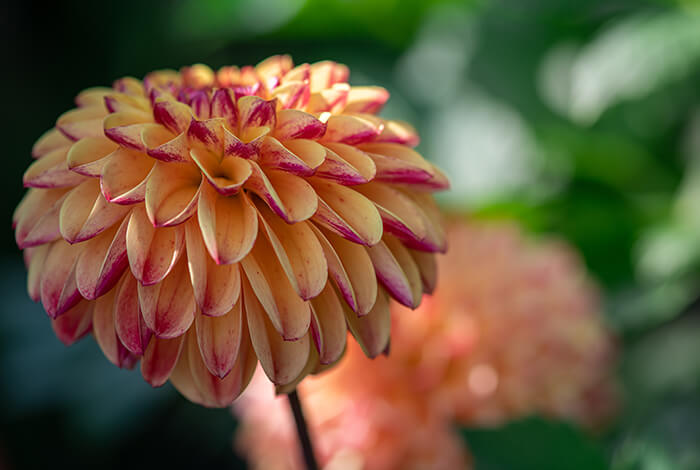
The veterinarian will induce vomiting if the ingestion of dahlia has happened within a few hours. It helps expel undigested plant material in the digestive system and prevents metabolization of its toxins.
They might follow it up with the administration of activated charcoal, which also helps stop further absorption of poisonous compounds. GI symptoms like vomiting and diarrhea can result in severe dehydration.
The vet will give your dog an IV drip to stabilize his water and electrolyte levels. They will also prescribe anti-emetic and antispasmodic medications to minimize vomiting and diarrhea.
Topical ointment will be applied to affected areas of your pet’s skin to reduce itchiness and inflammation.
FAQs About Are Dahlias Poisonous to Dogs?
1. How Poisonous Are Dahlias to Dogs?
Dahlias are only mildly poisonous to dogs, but it does not mean pawrents should let their guard down. These plants can cause serious health issues if consumed in large quantities.
2. What Happens If My Dog Eats Dahlias?
In most cases, eating dahlias causes stomach upset in dogs. They will likely experience abdominal pain, vomiting, and diarrhea.
Skin irritation induced by the plant’s phototoxic properties may also occur. Severe dahlia toxicity in canines invites severe adverse effects, such as seizures and lack of body coordination.
Although not negligible, mild symptoms are often temporary and do not need hospitalization. On the other hand, serious clinical signs require prompt medical care to prevent their condition from escalating into something fatal.
3. What Part of the Dahlia Is Toxic to Dogs?
All parts of the dahlia plant are toxic to dogs. If your dog ingests any section of the plant, he might suffer from poisoning. Keep him safe from its toxic dangers by choosing dog-friendly alternatives like:
If you already own a dahlia and do not plan to dispose of it, just make sure to place it in areas your dog cannot reach. If planted in a garden, surround it with a high and durable fence to keep Fido away.
4. Do Dahlias Come Back Every Year?
Dahlias are usually perennials or annual plants, meaning they do come back every year. These plants can grow in any part of the U.S., but they prefer to grow in warm areas. For this reason, they typically bloom around late summer to fall.
Thus, when walking your dog during these seasons, be aware of places where dahlias grow. This will help you plan your route and avoid these areas.
Conclusion
Are dahlias poisonous to dogs? Dahlias are poisonous to dogs because they naturally produce phototoxic polyacetylene substances. If your canine friend ingests these plants, gastrointestinal problems and skin irritation may occur.
Severe cases of toxicity may result in cardiac and neural problems like abnormal heart rate and seizures. So be sure that your furry pal does not have any access to dahlias.

